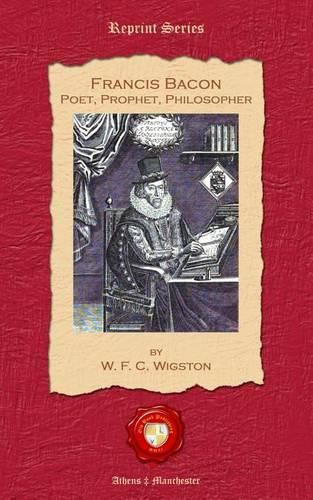Readings Newsletter
Become a Readings Member to make your shopping experience even easier.
Sign in or sign up for free!
You’re not far away from qualifying for FREE standard shipping within Australia
You’ve qualified for FREE standard shipping within Australia
The cart is loading…






The great interest that Bacon took in portraits of character is proved by the fact that he attempted to draw them himself. With a few felicitous touches be sketched the characters of Julius and Augustus Caesar, and his view of both was similar to that of Shakespeare. In Julius Caesar he saw combined all that the Roman genius had to bestow in the shape of greatness, nobility, culture, and fascination, and regarded his character as the most formidable that the Roman world could encounter. And giving what always serves as the proof of the calculation in the analysis of a character, Bacon so explains the character of Caesar, as to explain his fate also. He saw, like Shakespeare, that Caesar was naturally inclined to a despotic feeling that governed his great qualities and also their aberrations rendering him dangerous to the Republic and blind with respect to his enemies. He wished, says Bacon, not to be eminent amongst great and deserving men, but to be chief among inferiors and vassals. He was so much dazzled by his own greatness that he no longer knew what danger was.‘ This is the same Caesar into whose mouth Shakespeare puts the words: 'Danger knows full well That Caesar is more dangerous than he. We were two lions littered in one day, And I the elder and more terrible’ ( ‘Julius Caesar’, act ii. sc. 2.) When Bacon, at last, attributes the fate of Caesar to his forgiveness of enemies, that by this magnanimity he might impose upon the multitude, he still shows the dazzled man, who heightens the expression of his greatness at the expense of his security .
$9.00 standard shipping within Australia
FREE standard shipping within Australia for orders over $100.00
Express & International shipping calculated at checkout
The great interest that Bacon took in portraits of character is proved by the fact that he attempted to draw them himself. With a few felicitous touches be sketched the characters of Julius and Augustus Caesar, and his view of both was similar to that of Shakespeare. In Julius Caesar he saw combined all that the Roman genius had to bestow in the shape of greatness, nobility, culture, and fascination, and regarded his character as the most formidable that the Roman world could encounter. And giving what always serves as the proof of the calculation in the analysis of a character, Bacon so explains the character of Caesar, as to explain his fate also. He saw, like Shakespeare, that Caesar was naturally inclined to a despotic feeling that governed his great qualities and also their aberrations rendering him dangerous to the Republic and blind with respect to his enemies. He wished, says Bacon, not to be eminent amongst great and deserving men, but to be chief among inferiors and vassals. He was so much dazzled by his own greatness that he no longer knew what danger was.‘ This is the same Caesar into whose mouth Shakespeare puts the words: 'Danger knows full well That Caesar is more dangerous than he. We were two lions littered in one day, And I the elder and more terrible’ ( ‘Julius Caesar’, act ii. sc. 2.) When Bacon, at last, attributes the fate of Caesar to his forgiveness of enemies, that by this magnanimity he might impose upon the multitude, he still shows the dazzled man, who heightens the expression of his greatness at the expense of his security .